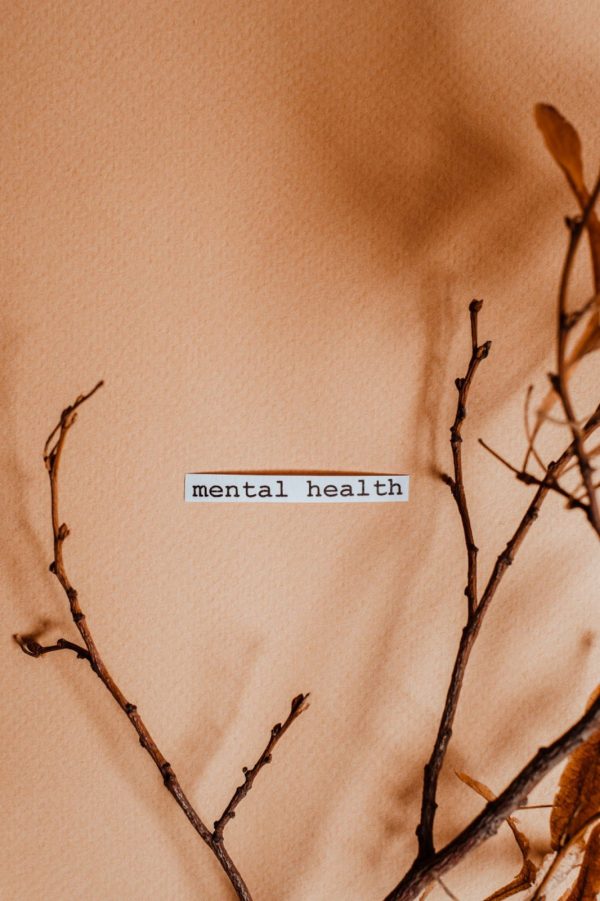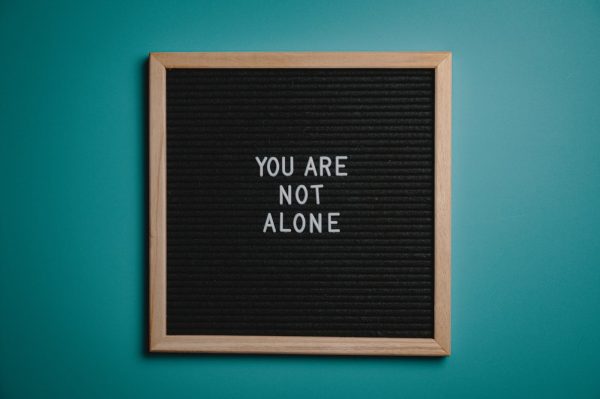Ways To Be Supportive and Break the Stigma of Mental Health
| Written by Jane Dustman, LCSW

While the weather is getting warmer as spring has sprung, things appear to be heading in the right direction. This seems fine and well, but just because the weather changes, does not necessarily mean our mindset or feelings have changed.
Mental health does not discriminate no matter the weather.
May is the time to step up, step out, and promote supporting any and all who have mental health concerns. Make May the month to help empower, become an ally and acknowledge those who are facing mental health concerns, those helping family or friends with mental health disorders and/or support mental health and healthcare providers all over the world as they work to break the stigma.
How Can We Break the Stigma Surrounding Mental Health?
Many of us have preconceived notions about what mental health is based on what it looks like from movies/TV or knowing one person who experienced something and we solely hold that to be true. Or other times, individuals think that certain conditions are a choice and that they are easily controllable.
Mental health is not a choice or someone’s fault. Mental health can be a culmination of biological factors, products of our environment, and medical conditions. Life stressors and major life events can impact our mental health and trigger them as well. Mental health does not discriminate no matter your age, race, ethnicity, where you live, how you were raised or your socioeconomic status.
Unfortunately, mental health symptoms can even be downplayed as one being “dramatic” or “attention-seeking.” Those comments and preconceived notions lead to mistrust, low self-esteem, exacerbation in psychiatric symptoms and isolation.
Mental Health symptoms can be mild, moderate and/or severe, however, they can also be in remission, a single episode or life long. Regardless, there are various forms of treatment to help monitor and manage those symptoms. Individuals with mental health concerns are warriors who face every day, the same way someone with medical/physical conditions do and tries to make the best of each day to the best of their abilities.
An example that is commonly given to help break down the stigma of mental health and certain diagnosis is this: a mental health concern is no different from a physical health concern that is not immediately visible to the naked eye. You would not deprive a diabetic of insulin even though you cannot see how using insulin affects their body. The same is true of mental health concerns. Even though they cannot be seen, they are real and must be treated with care. With some diagnosis, medication is also needed to help balance the chemicals out and to keep symptoms at bay.

Another aspect that is commonly looked down upon is the idea of therapy. Some have discriminated against those who go to therapy stating therapy is for the “weak” or it means you “cannot handle your own problems.” Both of those statements are absolutely FALSE. It is actually the opposite.
Attending therapy shows the commitment and dedication to themselves, the motivation to work through areas of concern with the aspect of allowing themselves to be vulnerable and accept help. That takes a tremendous amount of strength to do.
Mental Health is treatable. It does not mean you are less than. It does not mean you are weak. It does not mean you are dangerous.
Ways to Be an Ally
As stated earlier, mental health does not discriminate and each and every one of us have encountered a loved one, family member, friend, or peer with mental health concerns.
Help/support looks different for everybody, but here are some helpful tips to become a strong ally/support for the mental health community.
- Educate yourself– The National Alliance on Mental Illness (or NAMI) for short, is a great place to start in terms of familiarizing yourself with mental health disorders, ways to communicate with loved ones and ways to be of support to them during trying times.
- Offer a helping hand– do not be scared to ask if there are ways you can help. Sometimes being a sounding board, a shoulder to cry on, or even someone to step out into a safe place and to help be in the moment, can be the starting point for someone. It is important to note to not take on anything you cannot handle or are equipped for. Sometimes providing space for an individual to vent can help.

- Being Mindful and Empathetic– while you may not fully understand what someone is going through, being of support to an individual with mental health can be done by being in the moment and trying to place yourself in their shows. Being able to try and understand what someone is going through/feeling, shows empathy towards them, which can help an individual feel supported and safe. Think about what you would want someone to say if you were going through something difficult.
- Practice what you preach– If you want to be of support to others, you have to be of support to yourself as well. It is important to engage in healthy coping mechanisms, things that you do to keep you in the moment, make you feel good or are implemented as a healthy distraction, in order to help cope effectively with negative or distressing feelings/emotions. It is important to also ensure you are listening to your body, doing what it needs to ensure you are not burning out, taking on too much or neglecting your own needs.
- Speak up and speak out– Mental health is not taboo. The more intune we are with ourselves, what we experience and the more we normalize mental health, the more the stigma is broken. You speaking up and out can also help other individuals know they are not alone.
Help For Mental Health Concerns Is Out There
As stated earlier, you are not alone. Many mental health organizations have stepped up throughout the years to provide over pouring support and treatment to help those who are affected by mental health. Provided below are some quick resources to help those who are in need of mental health services.
- Calling or texting 988 when in a mental health crisis to help connect to the previously known National Suicide Prevention Lifeline with 24/7 service or by logging onto https://988lifeline.org.
- Calling 911 or heading to your local Emergency Room to meet with trained professionals to help you through your time of need and to be assessed for treatment and access to services.
- Accessing Support and resources through the National Association of Mental Illness, (NAMI), the Mental Health Association (MHANJ), through the Division of Mental Health and Addiction Services (DMHAS) and through NJ’s Hopeline.
If you or anyone you know are struggling with mental health concerns, having a hard time coping or need an outlet to process your thoughts, emotional and behavioral changes, and an increase in symptomatology, please don’t hesitate to reach out for help.
Licensed professionals can help you talk through your feelings, connect you with support and services, find techniques and skill sets to help regulate and explore your emotions, challenge negative thoughts and promote a positive, and ultimately help break the stigma of mental health.
Jane Dustman is a LCSW who enjoys spending her free time with family and friends, hanging on the beach, practicing yoga and dancing. Jane is dedicated to her practice of social work and enjoys being a full-time therapist at Exceptional Wellness Counseling.
EWC has locations in Manalapan and Shrewsbury, NJ, and accepts a variety of insurances.
Check out Jane’s professional bio here.
Email Us: info@exceptionalwellnesscounseling.com
Call Now: (908) 415-2042
NEXT STEPS & RESOURCES
-
- Are you ready to take your first step? Reach out to us.
- Do you feel you maybenefit from counseling during this time? Take the first step.
- Interested in online counseling? Learn more.
- Interested in group counseling? Learn More

